Building Resilient Tissue: Nutrients and Cofactors in Collagen Deposition, Synthesis, and Repair
Collagen is the most abundant protein in the human body, serving as a critical component of connective tissue, including skin, tendons, ligaments, cartilage, and bone. Its strength and elasticity support structural integrity and play an essential role in tissue repair. Understanding the nutrients and cofactors that drive collagen production can empower us to optimize healing and maintain healthy tissues.
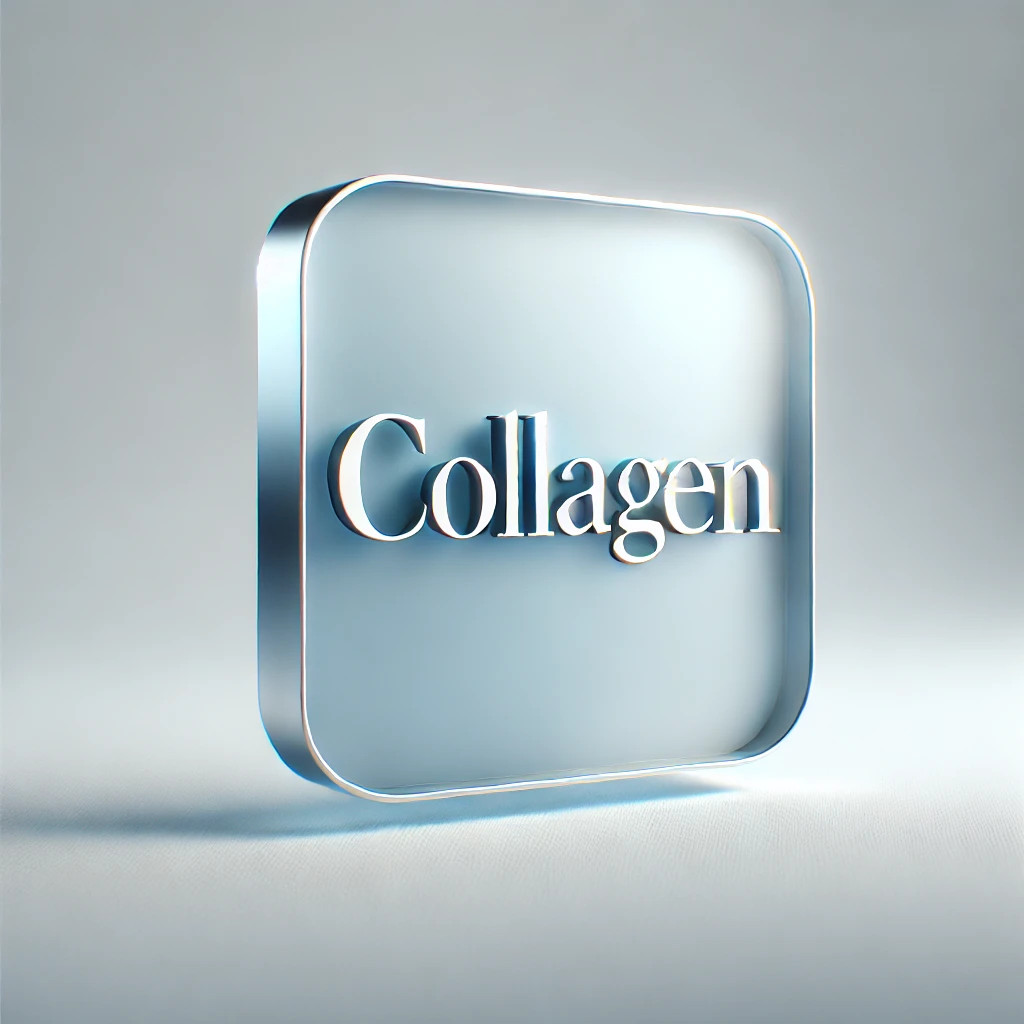
The Collagen Lifecycle: Synthesis and Repair
Collagen synthesis begins with procollagen production in fibroblasts. Procollagen undergoes hydroxylation, glycosylation, and other post-translational modifications before being secreted into the extracellular matrix (ECM), where it assembles into mature fibrils. This complex process is energy-intensive and relies on specific nutrients and cofactors to ensure its success. Tissue repair requires sufficient collagen deposition to rebuild damaged areas, and deficiencies in these essential elements can delay or impair healing.
Key Nutrients and Cofactors for Collagen Production
Amino Acids
Glycine
- Role: Backbone of the triple-helix structure, providing strength and flexibility.
- Collagen Types: I, II, III, IV.
- Sources: Bone broth, gelatin, chicken skin, fish skin, and collagen supplements.
- Deficiency Impact: Reduced structural integrity and delayed wound healing.
Proline
- Role: Stabilizes the triple-helix structure, enhancing structural integrity.
- Collagen Types: I, II, III, IV.
- Sources: Egg whites, dairy products, meat, and cabbage.
- Deficiency Impact: Weak collagen, reduced elasticity, and impaired tissue repair.
Hydroxyproline
- Role: Strengthens collagen by contributing to cross-linking.
- Collagen Types: I, II, IV.
- Sources: Synthesized from proline, dependent on sufficient vitamin C.
- Deficiency Impact: Weakened collagen structure and decreased durability.
Lysine
- Role: Supports enzymatic cross-linking, ensuring tensile strength and durability.
- Collagen Types: I, III, IV.
- Sources: Meat, eggs, fish, and legumes.
- Deficiency Impact: Reduced cross-linking, weakened collagen, and poor wound healing.
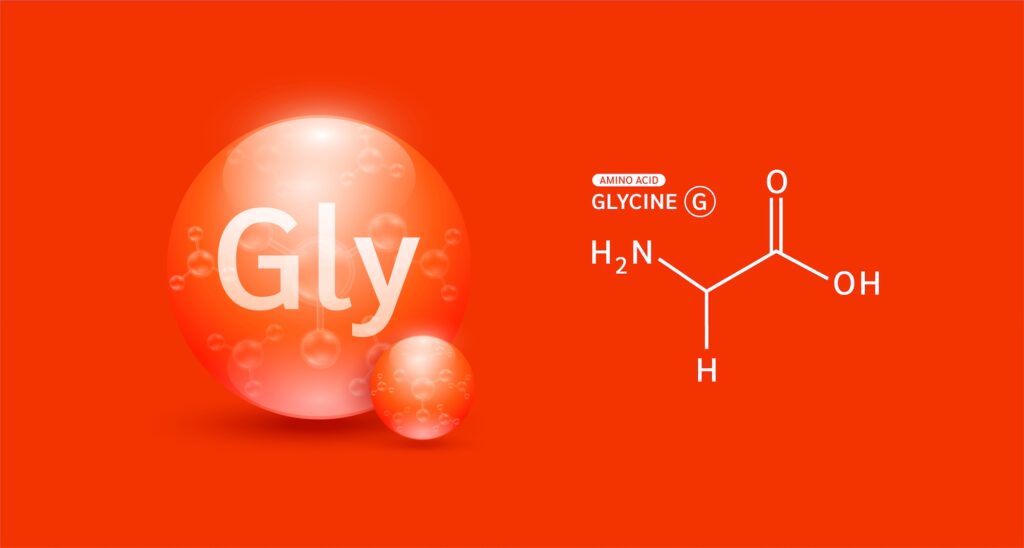
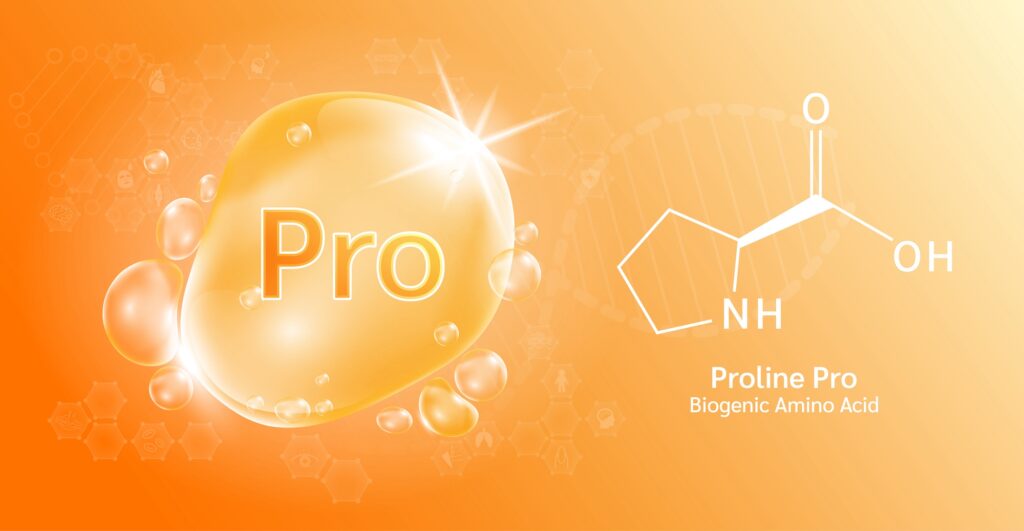
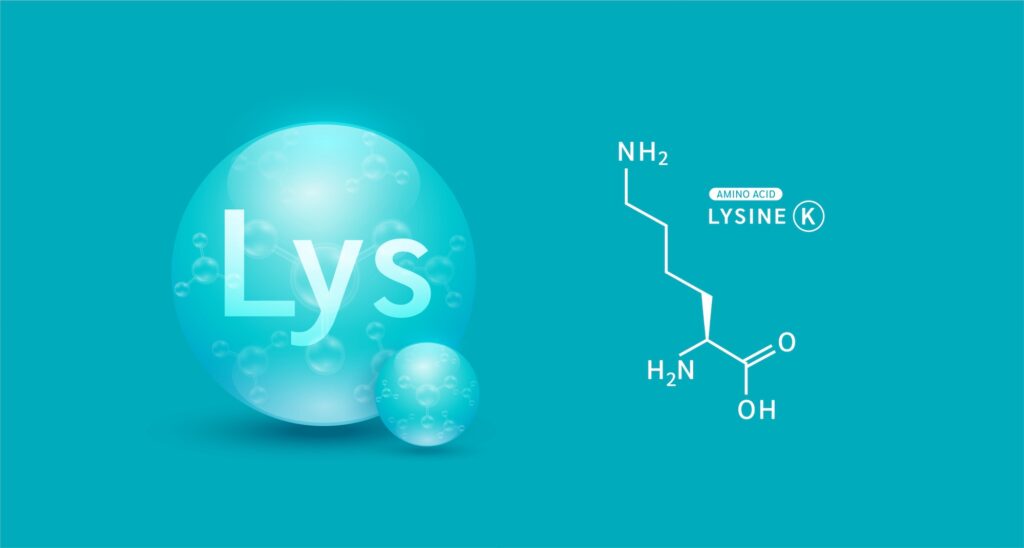
Vitamins




Vitamin C (Ascorbic Acid)
- Role: Cofactor for hydroxylation of proline and lysine, essential for stabilizing the triple helix.
- Collagen Types: I, II, III, IV.
- Sources: Citrus fruits, strawberries, bell peppers, broccoli, and spinach.
- Deficiency Impact: Scurvy, characterized by bleeding gums, poor wound healing, and weakened connective tissue.
Vitamin A
- Role: Regulates fibroblast activity, chondrocyte differentiation, and epithelial health.
- Collagen Types: I, II, III, IV.
- Sources: Sweet potatoes, carrots, liver, eggs, and dairy.
- Deficiency Impact: Impaired fibroblast activity, delayed wound healing, and reduced cartilage production.
- Role: Supports vascular health by stabilizing collagen in blood vessels and enhancing bone mineralization through its role in calcium metabolism.
- Collagen Types: III.
- Sources: Leafy greens (spinach, kale, collard greens), broccoli, Brussels sprouts, and fermented foods like natto.
- Deficiency Impact: Compromised vascular integrity, increased risk of bleeding, and reduced bone strength.
Vitamin D
- Role: Enhances calcium and phosphorus metabolism for bone mineralization and cartilage health.
- Collagen Types: I, II, III.
- Sources: Sunlight, fatty fish, fortified milk, and egg yolks.
- Deficiency Impact: Weakened bones, reduced cartilage integrity, and increased risk of fractures.
Minerals
Copper
- Role: Cofactor for lysyl oxidase, essential for collagen cross-linking.
- Collagen Types: I, II, III, IV.
- Sources: Shellfish, nuts, seeds, whole grains, and organ meats.
- Deficiency Impact: Weak connective tissue, joint dysfunction, and vascular weakness.
Zinc
- Role: Regulates fibroblast activity, ECM remodeling, and synthesis.
- Collagen Types: I, II, III, IV.
- Sources: Oysters, beef, pumpkin seeds, and legumes.
- Deficiency Impact: Delayed wound healing, impaired tissue repair, and poor collagen production.
Iron
- Role: Cofactor for hydroxylation reactions during collagen synthesis.
- Collagen Types: I, III.
- Sources: Red meat, spinach, lentils, and fortified cereals.
- Deficiency Impact: Anemia, impaired hydroxylation, and weakened collagen synthesis.
Magnesium
- Role: Activates enzymes for collagen synthesis and bone mineralization.
- Collagen Types: I (indirectly for II, III, and IV).
- Sources: Nuts, seeds, leafy greens, whole grains, and avocados.
- Deficiency Impact: Poor bone health, reduced connective tissue repair, and collagen instability.
Phosphorus
- Role: Works with calcium to support bone mineralization.
- Collagen Types: I.
- Sources: Dairy, meat, fish, and legumes.
- Deficiency Impact: Weak bones and reduced structural strength in connective tissues.
Calcium
- Role: Integral to bone mineralization alongside Type I collagen.
- Collagen Types: I.
- Sources: Dairy, leafy greens, fortified foods, and fish with bones.
- Deficiency Impact: Bone fragility and increased risk of fractures.
Sulfur
- Role: Supports glycosaminoglycan (GAG) synthesis for hydration and resilience.
- Collagen Types: II, IV.
- Sources: Garlic, onions, eggs, and cruciferous vegetables.
- Deficiency Impact: Reduced cartilage hydration and basement membrane integrity.
Silicon
- Role: Enhances cross-linking and GAG synthesis for connective tissue health.
- Collagen Types: I, II.
- Sources: Whole grains, bananas, and mineral water.
- Deficiency Impact: Brittle bones and weakened connective tissue.
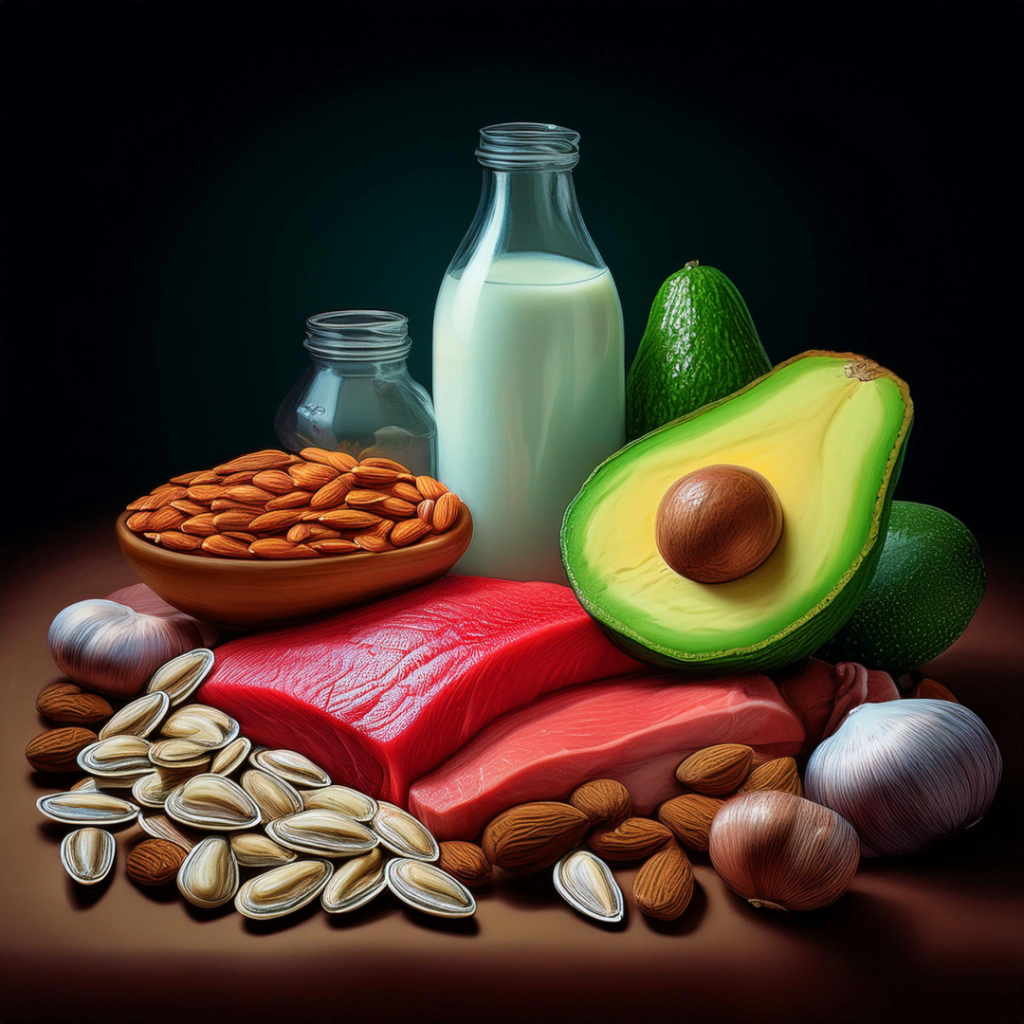
Other Supportive Nutrients

Hyaluronic Acid
- Role: Maintains hydration and elasticity.
- Collagen Types: I, II, III, IV.
- Sources: Bone broth, organ meats, and supplements.
- Deficiency Impact: Reduced tissue hydration and flexibility.
Omega-3 Fatty Acids
- Role: Reduces inflammation and protects against enzymatic degradation.
- Collagen Types: I, II, III, IV.
- Sources: Fatty fish, walnuts, flaxseeds, and chia seeds.
- Deficiency Impact: Increased inflammation and collagen degradation.
Glutathione
- Role: Protects collagen from oxidative stress.
- Collagen Types: II, IV (indirectly for I and III).
- Sources: Cruciferous vegetables, garlic, avocados, and supplements.
- Deficiency Impact: Accelerated oxidative damage and collagen degradation.
Chondroitin Sulfate
- Role: Binds to collagen and retains water in cartilage.
- Collagen Types: II.
- Sources: Cartilage-based supplements and bone broth.
- Deficiency Impact: Reduced cartilage hydration and resilience.
Heparan Sulfate
- Role: Supports filtration and structural stability.
- Collagen Types: IV.
- Sources: Endogenous production (synthesis supported by sulfur).
- Deficiency Impact: Compromised basement membrane integrity.
Glucosamine
- Role: Promotes glycosaminoglycan production.
- Collagen Types: II.
- Sources: Shellfish, cartilage-based supplements, and bone broth.
- Deficiency Impact: Reduced cartilage matrix production and hydration.
MSM (Methylsulfonylmethane)
- Role: Provides bioavailable sulfur for glycosaminoglycan (GAG) synthesis, reduces inflammation and oxidative stress, and supports tissue hydration and elasticity.
- Collagen Types: I, II, III, IV.
- Sources: Fruits, vegetables, grains, animal products, and supplements.
- Deficiency Impact: Weak connective tissue (Type I), reduced cartilage hydration (Type II), poor vascular elasticity (Type III), and compromised basement membrane stability (Type IV).
Nourishing Collagen for a Healthier You
Collagen is the cornerstone of our body’s structural integrity, playing a vital role in the health and resilience of skin, joints, bones, and connective tissues. By prioritizing a nutrient-rich diet that includes essential vitamins, minerals, and supportive cofactors, we can actively support collagen synthesis, repair, and overall tissue health. Whether you’re focused on recovery, preventing injury, optimizing regenerative injections, or simply maintaining optimal function as you age, understanding and incorporating these building blocks into your lifestyle is a powerful step toward long-term vitality.
Take action today: Explore ways to include these collagen-boosting nutrients in your daily routine and consider reaching out to Dr. Dunning for personalized guidance. Your journey to stronger, healthier tissues starts now!
